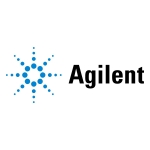SANTA CLARA, Calif.–(BUSINESS WIRE)–Agilent Technologies Inc. (NYSE: A) today announced the company’s near and long-term targets for reaching net-zero greenhouse gas emissions have been approved by the Science Based Targets initiative (SBTi). The targets support the ambitious goal to limit planetary warming to 1.5°C above pre-industrial levels.
“Companies have an important role to play in driving the transition to a green economy,” said Agilent President and CEO Mike McMullen. “Having measurable goals for this work is critical to ensuring sustainable growth that will enable communities and business to thrive for generations to come.”
SBTi is an independent organization that validates company emissions targets to ensure they meet the criteria required to prevent the worst effects of climate change. The SBTi partners with the CDP, the United Nations Global Compact, World Resources Institute, and World Wide Fund for Nature in defining and validating targets grounded in climate science.
Agilent publicly committed to net-zero greenhouse gas (GHG) emissions targets in 2021. This important goal was made in addition to adopting the Global Reporting Initiative guidelines in 2004, the Sustainability Accounting Standards Board (SASB) recommendations in 2020, and the Task Force on Climate-Related Financial Disclosures (TCFD) framework in 2021.
Below are Agilent’s SBTi-approved targets, all of which are measured from a base year of 2019.
2030 Targets
- Reduce absolute Scope 1 and 2 GHG emissions by 50%
- Reduce absolute Scope 3 GHG emissions from purchased goods and services, capital goods, upstream transportation and distribution, business travel, and employee commuting by 30%
2050 Target
- Reduce absolute Scope 1, 2, and 3 GHG emissions by 95%
Since 2014, Agilent has reduced Scope 1 and 2 emissions by one third by investing in renewable energy sources, reducing energy consumption, and transitioning to energy-efficient systems and technology. In 2022, the company launched a plan to reduce Scope 3 emissions in the supply chain, which includes creating a baseline of supplier emissions contributions, educating suppliers about net-zero targets, and planning workshops and forums to support their goal setting and progress.
“We are also helping our customers on their journey toward net zero,” said Neil Rees, head of ESG programs at Agilent. “We’ve developed innovative lab products, software tools, and technology that reduce consumption of fossil fuels and solvents. And we’ve added My Green Lab’s ACT label to more instruments, adopted greener packaging, and expanded our instrument recycling and refurbishing program across our global operations.”
Agilent reports on its progress toward net-zero targets in its annual ESG report. See the latest report, which also includes information on Agilent’s sustainable supply chain operations, end-of-life product management, packaging, and green logistics, among other topics.
Learn more about Agilent’s sustainable solutions for customers, including ACT-labeled products and its award-winning instrument recycling and refurbishment program. View Agilent’s targets on SBTi’s website and read more about the company’s path to net zero.
About Agilent Technologies
Agilent Technologies Inc. (NYSE: A) is a global leader in analytical and clinical laboratory technologies, delivering insights and innovation that help our customers bring great science to life. Agilent’s full range of solutions includes instruments, software, services, and expertise that provide trusted answers to our customers’ most challenging questions. The company generated revenue of $6.85 billion in fiscal 2022 and employs 18,000 people worldwide. Information about Agilent is available at www.agilent.com. To receive the latest Agilent news, subscribe to the Agilent Newsroom. Follow Agilent on LinkedIn and Facebook.
Forward-Looking Statements
This news release contains forward-looking statements as defined in the Securities Exchange Act of 1934 and is subject to the safe harbors created therein. The forward-looking statements contained herein include, but are not limited to, net zero commitments, emissions targets and initiatives, and reporting of progress on these targets and initiatives. These forward-looking statements involve risks and uncertainties that could cause Agilent’s results and achievements to differ materially from management’s current expectations. Such risks and uncertainties include, but are not limited to, unforeseen changes in the demand for current and new products, technologies, and services; customer purchasing decisions and timing; changes in developing standards and certifications; and the cost and availability of renewable energy and carbon removal and offset projects. In addition, other risks that Agilent faces in running its operations include the ability to execute successfully through business cycles; the ability to meet and achieve the benefits of its cost-reduction goals and otherwise successfully adapt its cost structures to continuing changes in business conditions; ongoing competitive, pricing and gross-margin pressures; the impact of geopolitical uncertainties and global economic conditions on its operations, its markets and its ability to conduct business; the ability of its supply chain to adapt to changes in demand; the ability to successfully introduce new products at the right time, price and mix; the adverse impacts of and risks posed by the COVID-19 pandemic and other risks detailed in Agilent’s filings with the Securities and Exchange Commission, including its quarterly report on Form 10-Q for the quarter ended July 31, 2023. Forward-looking statements are based on the beliefs and assumptions of Agilent’s management and on currently available information. Agilent undertakes no responsibility to publicly update or revise any forward-looking statement.
Contacts
Sarah Litton
+1 669 255 7696





